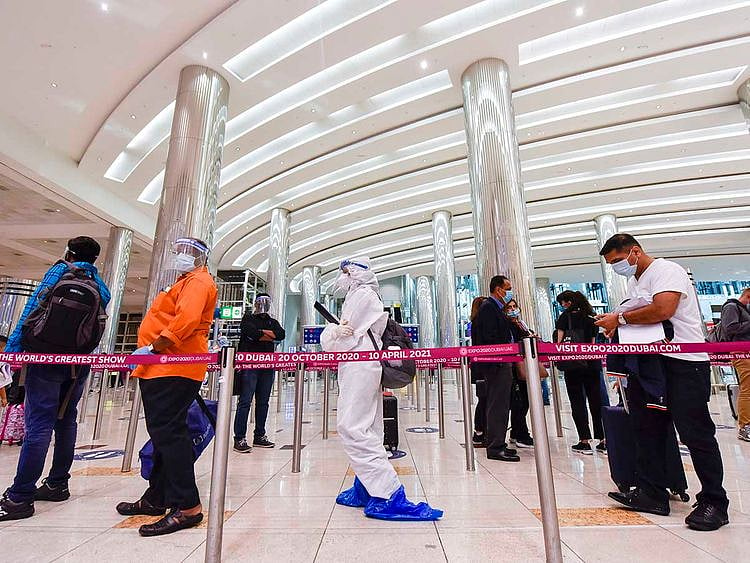COVID-19: Expats in UAE concerned as India makes RT-PCR test mandatory for all passengers including babies
Passengers landing in India from 12am on February 23 must upload negative RT-PCR report

Dubai: The Indian government has clarified that all international passengers irrespective of their age and gender have to upload negative RT-PCR COVID-19 test report on Air Suvidha portal prior to flying to India from midnight tonight.
This has raised concerns among Indian expats in the UAE planning to fly home with their kids, especially babies and toddlers.
As India is set to implement the new Standard Operating Procedures (SOP) for international travellers after 11.59pm on February 22, all passengers from abroad landing in India from 12am on February 23 will have to upload the negative RT-PCR report while filling the Self-Declaration Form (SDF) on the Air Suvidha portal within 72 hours prior to departure.
The only exemption for uploading the RT-PCR negative test result issued within 72 hours prior to departure is given for those travelling in the exigency of death in the family. Such passengers need to apply to the Air Suvidha portal for exemption at least 72 hours before boarding.
Kids below 10 must be tested
Through an FAQ posted on the Air Suvidha portal, the government has clarified that even children below 10 have to test negative for travelling to India.
Several expats took to Twitter seeking clarification on the rule and also expressed their concerns about testing younger kids including infants.
Vrunal. S, a chartered accountant in Dubai, told Gulf News he was concerned about the test for his six-month-old son with whom his wife and her parents are flying to Pune on Thursday. He said he had asked the Indian Consulate in Dubai for an exemption for the test for the baby, but was told it was mandatory. “I didn’t expect that we will have to test our son. In most countries children aged at least below six years have been exempted from the test for travel. Now, I need to rush and get my baby tested.”
Some parents also raised concerns about taking nasal swabs of children and worries about taking children to the testing centres where they could be exposed to infection.
Doctors allay fears
However, doctors in the UAE have allayed fears about testing small children.
Take appointment
He said results of PCR test done with swabs from nostril, throat and saliva have been found to be comparable and parents can opt for the one they feel most comfortable with.
Sign up for the Daily Briefing
Get the latest news and updates straight to your inbox
Network Links
GN StoreDownload our app
© Al Nisr Publishing LLC 2026. All rights reserved.